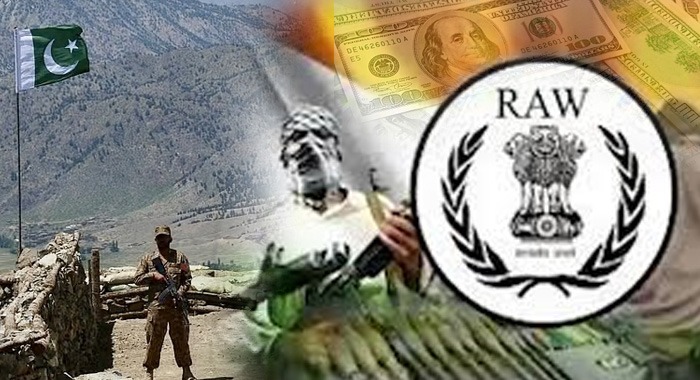In a chilling expose that has sent shockwaves through Pakistan’s security and diplomatic corridors, irrefutable intelligence has unveiled that Indian spy agencies are bankrolling the banned Tehrik-e-Taliban Pakistan (TTP) with millions of dollars—assigning them a blood-soaked mission to abduct and assassinate Pakistani security personnel and plunge the country into chaos.
According to top-tier security sources, the recent spike in attacks and kidnappings of soldiers and police officers—especially across Khyber Pakhtunkhwa’s restive southern districts—is no random surge, but a calculated onslaught bankrolled by New Delhi. Behind each bullet fired and every uniformed officer abducted lies foreign money, a foreign agenda, and a dangerous game of destabilization.
In what experts are calling an open declaration of hybrid warfare, defence analysts have warned that India’s covert campaign aims to derail the multi-billion-dollar China-Pakistan Economic Corridor (CPEC), strangle Pakistan’s economic progress, and ignite a firestorm of unrest across the region.
The plot deepens with the capture of multiple Indian operatives in Balochistan and Punjab, who—during interrogation—admitted to being on missions to sabotage strategic sites and eliminate key figures. The seizure of explosive materials from their possession, now in the custody of Pakistani authorities, has left no room for doubt. DG ISPR Major General Ahmed Sharif Chaudhry has already laid bare the evidence before the media, exposing the ugly underbelly of India’s cross-border terror infrastructure.
Insiders reveal that the Ministry of Interior, in coordination with intelligence outfits, is compiling a comprehensive, damning dossier—filled with financial trails, communications intercepts, and operational maps—tracing Indian support to TTP terror cells. This report, now nearing completion, is expected to shake diplomatic tables worldwide as Pakistan moves to unmask India at the international level.
The revelations have unleashed a storm of anger across political and public circles. Lawmakers and civil society leaders have demanded urgent global intervention, calling India’s actions “state-sponsored terrorism of the highest order.” “This is not just an attack on Pakistan—it is an assault on regional peace,” one senior politician stated. “If the world remains silent now, tomorrow’s chaos will be theirs to answer for.”
As Islamabad prepares to go global with its case, Pakistan stands at a pivotal crossroads—armed not just with resolve, but with proof. The question now echoes beyond borders: Will the world hold India accountable—or will silence become complicity in terror?





